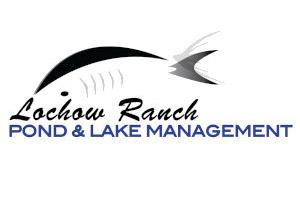Graduate Student Work Study Positions
Antioch University (Private) | https://www.antioch.edu/academics/environmental-studies-sustainability/environmental-studies-ms/conservation-biology-es-ms/
Details
Application Deadline:
07/15/2025
Published:
06/16/2025
Starting Date:
after 8/25/2025
Hours per Week:
10 - 20
Salary:
starting at $16 per hour
Education Required:
Bachelors
Experience Required:
none
Location:
remote work allowed
Tags:
Graduate Opportunities
Description
Antioch University is offering work study positions, if you enroll in the Environmental Studies Master’s program, and is accepting applications to start your MS degree during the fall semester (late August) of 2025. MS Concentrations include Conservation Biology, Environmental Education, Advocacy for Social Justice and Sustainability, and several others. In Conservation Biology, students focus on gaining quantitative (GIS and statistics), writing, and ecological field skills. Students also gain experience with community engagement, social justice, and applied research and service.
Students often work with Antioch faculty in our existing research programs. Specifically in our Conservation Biology concentration, we have expertise in vertebrate ecology (e.g., birds, snakes), invertebrate ecology (e.g., estuarine invertebrates, insects), tropical ecology, forest ecology, alpine ecology, marine ecology, and coastal restoration. In some cases, faculty may have extramural funding to support students in seasonal field and lab positions, including research in New England and in the Caribbean. Students who are eligible for US federal work-study can work part time in various on-campus work-study positions, including Graduate Teaching and Research Assistantships and various positions in our numerous campus centers (e.g., Institute for International Conservation, Spatial Analysis Lab). However, you need to be accepted and taking classes as a graduate student to be eligible for these work-study positions. Students at Antioch generally pay for at least part of their own tuition, but we offer numerous university-wide grants and scholarships, which can help defray tuition costs, and which are detailed here: https://www.antioch.edu/admission-aid/financial-aid/scholarships-and-grants/ . We also work with students to help them apply for external scholarships, fellowships, and research-focused grants.
Students often work with Antioch faculty in our existing research programs. Specifically in our Conservation Biology concentration, we have expertise in vertebrate ecology (e.g., birds, snakes), invertebrate ecology (e.g., estuarine invertebrates, insects), tropical ecology, forest ecology, alpine ecology, marine ecology, and coastal restoration. In some cases, faculty may have extramural funding to support students in seasonal field and lab positions, including research in New England and in the Caribbean. Students who are eligible for US federal work-study can work part time in various on-campus work-study positions, including Graduate Teaching and Research Assistantships and various positions in our numerous campus centers (e.g., Institute for International Conservation, Spatial Analysis Lab). However, you need to be accepted and taking classes as a graduate student to be eligible for these work-study positions. Students at Antioch generally pay for at least part of their own tuition, but we offer numerous university-wide grants and scholarships, which can help defray tuition costs, and which are detailed here: https://www.antioch.edu/admission-aid/financial-aid/scholarships-and-grants/ . We also work with students to help them apply for external scholarships, fellowships, and research-focused grants.
Students can earn their graduate degree with either face-to-face classes at the Antioch University New England campus in Keene, NH, USA, or fully online classes (that can be taken from anywhere) which are offered each semester, or with a mixture of the two. Ecological field trip classes (intensive 1-2 week trips to destinations abroad and in-country) are also available for all students. All classes are just 1-2 days a week, making this a viable program for environmental professionals working part or full-time. Our programs are student-centered, flexible, and tailored to meet your individual needs, learning style, and location.
Join our tight-knit community as we strive to advance social and environmental justice, conserve biodiversity, and mitigate climate change as a department and as a university! For more information about our programs, visit our webpages (https://www.antioch.edu/academics/program-finder?_sft_focus=environmental-studies-sustainability , https://www.antioch.edu/academics/environmental-studies-sustainability/environmental-studies-ms/conservation-biology-es-ms/ ) or contact Melissa Baptiste, Admissions Counselor, at mbaptiste (at) antioch.edu.
Contact
Melissa Baptiste
mbaptiste@antioch.edu (preferred contact method)






